ColtsSurf

Joined: Apr 03, 2008
Posts: 477






|

Posted on Nov 27 2009 10:47 AM
This question is directed to those of you with the big vintage iron, in particular those who play out with Showman, Bassman, and Bandmaster heads paired with cabinets filled with 15 inch speakers.
When you are recording a CD in studio, do you use your live equipment or do you downsize? If you use your live gear, how do you make it work? If you downsize, what gear do you use?
We're recording right now and are dealing with amp and speaker optimization issues. Thanks for any insights.
Paul
— Paul
|
JakeDobner

Joined: Feb 26, 2006
Posts: 12159
Seattle



|

Posted on Nov 27 2009 11:32 AM
Can you explain how you are having "optimization" problems?
My band recorded our two albums with amps that are all "gig" worthy and we recorded them, essentially, at gig volume. This really wasn't a problem at the studio where we recorded. We had a huge live room and enough partitions to prevent bleed-in from the amps to the other guy's close-mics.
Of course, there is nothing wrong with downsizing in the studio. I'd love to give that a shot sometime, I just don't own any amps that are smaller. Even a Deluxe Reverb isn't "small" in my opinion.
There isn't a rule that says you have to use Piggyback Fenders or Twins for surf music. People have just made it seem like that. Good music is good music.
|
ColtsSurf

Joined: Apr 03, 2008
Posts: 477






|

Posted on Nov 27 2009 11:47 AM
Hey Jake,
Our recording engineer likes the guitars turned up to full volume. He believes that this creates the best conditions with fewest problems for the direct line feed.
However, with the guitars up full, the miked amps have to be turned down. So there is this tricky balancing of direct line requirements, mic sensitivities, and tone loss with turning down.
My "solution" has been to bring in a 5 Watt 1x12 Champ-type amp and use analog delay and a G-Spring reverb unit. It's a very nice tone, but not really traditional surf.
As an amateur, I just wondered what the experienced players do in a recording setting.
Paul
— Paul
|
DannySnyder
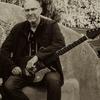
Joined: Mar 02, 2006
Posts: 11063
Berkeley, CA











|

Posted on Nov 27 2009 11:53 AM
I'm not familiar with very many surf guitarists running a direct feed. Bass yes, but guitars are usually not. Part of what sounds so good turning the amps full up is the effect on the speaker, you'd lose that on direct feeds. The size of the room does make a big difference, just like playing live. If the champ sounds good then use it, like Jake said 'good music is good music'. If you have the time though, try playing through different amps on different songs, give the guitar tone a little variation.
— Danny Snyder
"With great reverb comes great responsibility" - Uncle Leo
Playing keys and guitar with Combo Tezeta
Formerly a guitarist in The TomorrowMen and Meshugga Beach Party
Latest surf project - Now That's What I Call SURF
|
ColtsSurf

Joined: Apr 03, 2008
Posts: 477






|

Posted on Nov 27 2009 12:05 PM
Thanks Danny. I will try varying the amps. It's all new to me. Basically, the guys in charge are using both a direct line feed and a miked feed from the amps to create two channels, and then EQ'ing the direct feed to balance with the amp tone.
Paul
— Paul
|
revmike

Joined: Feb 26, 2006
Posts: 3840
North Atlantic








|

Posted on Nov 27 2009 10:17 PM
Personally I would ditch the direct line, and go with a couple of mics (one close, and one further back). If you are all playing in the same room with minimal or no baffles, then I would go with a close mic on the amp, and a room mic for the overall sound.
When I record, I use a variety of amps, depending on the tone I'm looking for. My live amps, a Fender Vibrasonic & a Garnet Revolution are the ones I use most often (at gig volume). I don't crank these all the way up (in the studio or live), but they are moving air. If I'm looking for a dirty tone, I'll go with a small amp cranked. I have a Kalamazoo Model 2, and a Danelectro Cadet for that sound. The tone is more Link Wray than trad surf.
Experiment with different sounds and different amps. Like Danny said, change your tone from tune to tune. The final results will be much more interesting.
Good Luck in the Studio & have fun!
Rev
— Canadian Surf
http://www.urbansurfkings.com/
|
ColtsSurf

Joined: Apr 03, 2008
Posts: 477






|

Posted on Nov 28 2009 09:12 AM
Thanks Rev, that's good insight. As you and Danny advised, I will definitely change up the amps and the guitars as well. It's not my call on the direct line. However, the project leader wants to put a very wide variety of instruments on the tracks, so it should be interesting.
Paul
— Paul
|
rotnroby
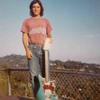
Joined: Mar 31, 2010
Posts: 877
Santa Barbara Ca... in the 805

|

Posted on May 15 2010 05:24 PM
ColtsSurf
Thanks Rev, that's good insight. As you and Danny advised, I will definitely change up the amps and the guitars as well. It's not my call on the direct line. However, the project leader wants to put a very wide variety of instruments on the tracks, so it should be interesting.
Paul
Rev's got it right!! When I am recording and thats about once or twice a week , I use 2 AKG 414's one for the speaker of the amp and the other for the room.. Amp's very and guitars very in different amps so experiment ...
|
Rio
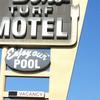
Joined: May 22, 2006
Posts: 500
Hamilton, Ontario


|

Posted on May 15 2010 06:02 PM
The downside to larger amps in a recording setting is the levels you generally have to play at to get the power tubes & speaker going-- depending on the size of the room, it can be unmanageable, both because of feedback at high volume, and having to crank the headphone mix to really uncomfortable levels to hear the monitor mix over the amp in the room.
A Deluxe or Princeton Reverb is easier to handle in a smaller space, at a lower overall volume, and they can sound great-- I add a 15" cab sometimes to beef up the sound a bit more.
But if you can put the amp in another room, or have a big enough room to get away with it, I find a loud amp at relatively high volume will have a punchier sound that I find harder to get with smaller amps.
And I'm another proponent of two mics on the guitar cab, if you can do-- I usually use a dynamic up close, and a ribbon mic 3 or 4 feet away.
— http://www.facebook.com/?sk=lf#!/rockinrio.delrosa
http://www.facebook.com/?sk=lf#!/TheHighTides
http://www.facebook.com/?sk=lf#!/pages/The-Blue-Demons
|
LHR

Joined: Aug 23, 2006
Posts: 2123
The jungle









|

Posted on May 15 2010 06:09 PM
Next time I record (soon, I hope) I am definitely going to track a dry guitar signal and re-amp it. Or, if I find it convincing enough, use Amp Farm or Amplitude (or whatever amp modeler is the flavor of the week.)
This idea was put into my head by an engineer friend I spoke to lately. It just makes too much sense.
Of course, during tracking, your signal is going through your reverb and amp to monitor, so you can play properly. But a DI placed between guitar and effects captures the dry signal.
As well, my engineer buddy suggests recording the amp also. He sometimes finds it useful to blend into the final mix. As far as amps to use in studio, I would suggest finding an old Fender Princeton. Or maybe something smaller like an old Champ...sure why not? For modern amps, I like to record with my Blues Junior.
— SSIV
|
rotnroby

Joined: Mar 31, 2010
Posts: 877
Santa Barbara Ca... in the 805

|

Posted on May 15 2010 07:10 PM
LHR
Next time I record (soon, I hope) I am definitely going to track a dry guitar signal and re-amp it. Or, if I find it convincing enough, use Amp Farm or Amplitude (or whatever amp modeler is the flavor of the week.)
This idea was put into my head by an engineer friend I spoke to lately. It just makes too much sense.
Of course, during tracking, your signal is going through your reverb and amp to monitor, so you can play properly. But a DI placed between guitar and effects captures the dry signal.
As well, my engineer buddy suggests recording the amp also. He sometimes finds it useful to blend into the final mix. As far as amps to use in studio, I would suggest finding an old Fender Princeton. Or maybe something smaller like an old Champ...sure why not? For modern amps, I like to record with my Blues Junior.
Been using this rig for the last 5 songs, two condenser akg 414 mic's G-spring and my 66 Jazzmaster ... Just stellar results without high volumes!! 
|
Ruhar
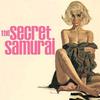
Joined: Jun 21, 2007
Posts: 3909
San Diego, CA





|

Posted on May 15 2010 07:33 PM
If you can downsize the amp, I'm all for that as well as that will let you open up the amp to its fullest potential while still having the guitar volume up. However, you can still get a good recorded tone from a bigger amp. I don't see anything wrong with bringing the guitar volume down while cranking your amp to 8-10. That's where the amp wants to be and at that level will start to react properly to the guitar's volume and tone controls. Running the amp at a high enough volume is the key. Bring down your amps tone controls and/or guitar volume control to get the overall volume down to an acceptable level.
You can also use a good clean boost that can add a touch of beef and body to your tone without increasing the volume. The RC Booster by Xotic is an excellent clean boost with tailorable gain, treble and bass controls.
— Ryan
The Secret Samurai Website
The Secret Samurai on Facebook
|
kenposurf
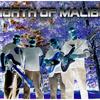
Joined: Feb 23, 2007
Posts: 1650
Santa Rosa, CA








|

Posted on May 16 2010 12:07 AM
As mentioned in another thread, I used a pair of Gomez amps and a pair of G-Springs in the studio to track most of my guitar parts for our new cd that's in the works..Surfer w/ 2 15's at 8 and Sonido w/ 2 12's at about 5 lite wash of verb on one moderate on the other...a bit of clean boost for a couple of solos and some echo on one tune..so far the mixes have sounded huge
I just wanted to get the amps to the point of a full bloom...
— www.northofmalibu.com
|
LHR

Joined: Aug 23, 2006
Posts: 2123
The jungle









|

Posted on May 16 2010 05:53 AM
rotnroby
LHR
Next time I record (soon, I hope) I am definitely going to track a dry guitar signal and re-amp it. Or, if I find it convincing enough, use Amp Farm or Amplitude (or whatever amp modeler is the flavor of the week.)
This idea was put into my head by an engineer friend I spoke to lately. It just makes too much sense.
Of course, during tracking, your signal is going through your reverb and amp to monitor, so you can play properly. But a DI placed between guitar and effects captures the dry signal.
As well, my engineer buddy suggests recording the amp also. He sometimes finds it useful to blend into the final mix. As far as amps to use in studio, I would suggest finding an old Fender Princeton. Or maybe something smaller like an old Champ...sure why not? For modern amps, I like to record with my Blues Junior.
Been using this rig for the last 5 songs, two condenser akg 414 mic's G-spring and my 66 Jazzmaster ... Just stellar results without high volumes!! 
I am not sure what my post has to do with your reply. I am sure your recordings sound just fine. That was not my point.
— SSIV
|
rotnroby

Joined: Mar 31, 2010
Posts: 877
Santa Barbara Ca... in the 805

|

Posted on May 16 2010 10:37 AM
LHR
rotnroby
LHR
Next time I record (soon, I hope) I am definitely going to track a dry guitar signal and re-amp it. Or, if I find it convincing enough, use Amp Farm or Amplitude (or whatever amp modeler is the flavor of the week.)
This idea was put into my head by an engineer friend I spoke to lately. It just makes too much sense.
Of course, during tracking, your signal is going through your reverb and amp to monitor, so you can play properly. But a DI placed between guitar and effects captures the dry signal.
As well, my engineer buddy suggests recording the amp also. He sometimes finds it useful to blend into the final mix. As far as amps to use in studio, I would suggest finding an old Fender Princeton. Or maybe something smaller like an old Champ...sure why not? For modern amps, I like to record with my Blues Junior.
Been using this rig for the last 5 songs, two condenser akg 414 mic's G-spring and my 66 Jazzmaster ... Just stellar results without high volumes!! 
I am not sure what my post has to do with your reply. I am sure your recordings sound just fine. That was not my point.
LOL!! ok?
|
JakeDobner

Joined: Feb 26, 2006
Posts: 12159
Seattle



|

Posted on May 16 2010 10:46 AM
LHR
Next time I record (soon, I hope) I am definitely going to track a dry guitar signal and re-amp it. Or, if I find it convincing enough, use Amp Farm or Amplitude (or whatever amp modeler is the flavor of the week.)
This idea was put into my head by an engineer friend I spoke to lately. It just makes too much sense.
Of course, during tracking, your signal is going through your reverb and amp to monitor, so you can play properly. But a DI placed between guitar and effects captures the dry signal.
As well, my engineer buddy suggests recording the amp also. He sometimes finds it useful to blend into the final mix. As far as amps to use in studio, I would suggest finding an old Fender Princeton. Or maybe something smaller like an old Champ...sure why not? For modern amps, I like to record with my Blues Junior.
My baby otter, let me show you it.

|
rotnroby

Joined: Mar 31, 2010
Posts: 877
Santa Barbara Ca... in the 805

|

Posted on May 16 2010 10:55 AM
JakeDobner
LHR
Next time I record (soon, I hope) I am definitely going to track a dry guitar signal and re-amp it. Or, if I find it convincing enough, use Amp Farm or Amplitude (or whatever amp modeler is the flavor of the week.)
This idea was put into my head by an engineer friend I spoke to lately. It just makes too much sense.
Of course, during tracking, your signal is going through your reverb and amp to monitor, so you can play properly. But a DI placed between guitar and effects captures the dry signal.
As well, my engineer buddy suggests recording the amp also. He sometimes finds it useful to blend into the final mix. As far as amps to use in studio, I would suggest finding an old Fender Princeton. Or maybe something smaller like an old Champ...sure why not? For modern amps, I like to record with my Blues Junior.
My baby otter, let me show you it.

Super cute!! Nice photo....
|
LHR

Joined: Aug 23, 2006
Posts: 2123
The jungle









|

Posted on May 16 2010 03:09 PM
JakeDobner
LHR
Next time I record (soon, I hope) I am definitely going to track a dry guitar signal and re-amp it. Or, if I find it convincing enough, use Amp Farm or Amplitude (or whatever amp modeler is the flavor of the week.)
This idea was put into my head by an engineer friend I spoke to lately. It just makes too much sense.
Of course, during tracking, your signal is going through your reverb and amp to monitor, so you can play properly. But a DI placed between guitar and effects captures the dry signal.
As well, my engineer buddy suggests recording the amp also. He sometimes finds it useful to blend into the final mix. As far as amps to use in studio, I would suggest finding an old Fender Princeton. Or maybe something smaller like an old Champ...sure why not? For modern amps, I like to record with my Blues Junior.
My baby otter, let me show you it.

Exactly!
— SSIV
|








































